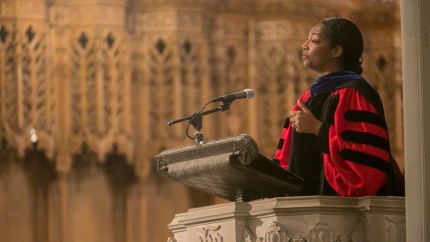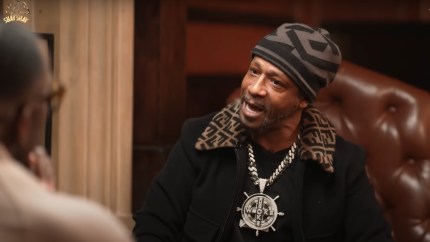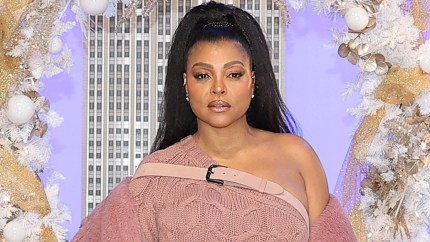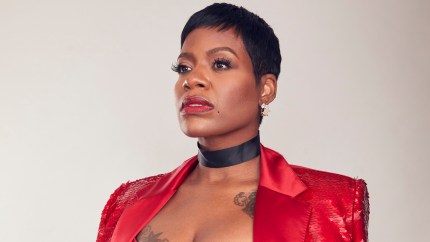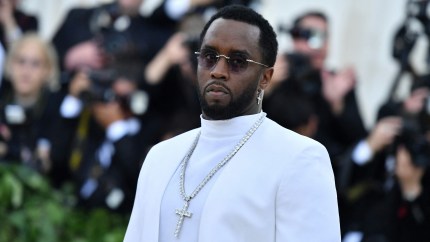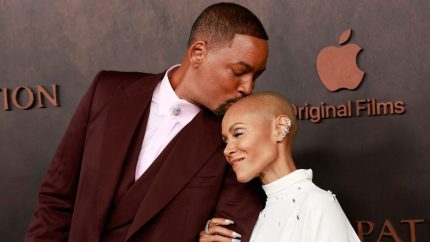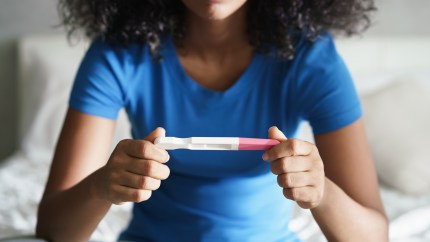Learning to walk alongside a leading lady: Refining my faith as a recovering misogynist
As Black women leaders increasingly seem under siege, Rev. Calvin Taylor Skinner examines his own struggle with misogyny.
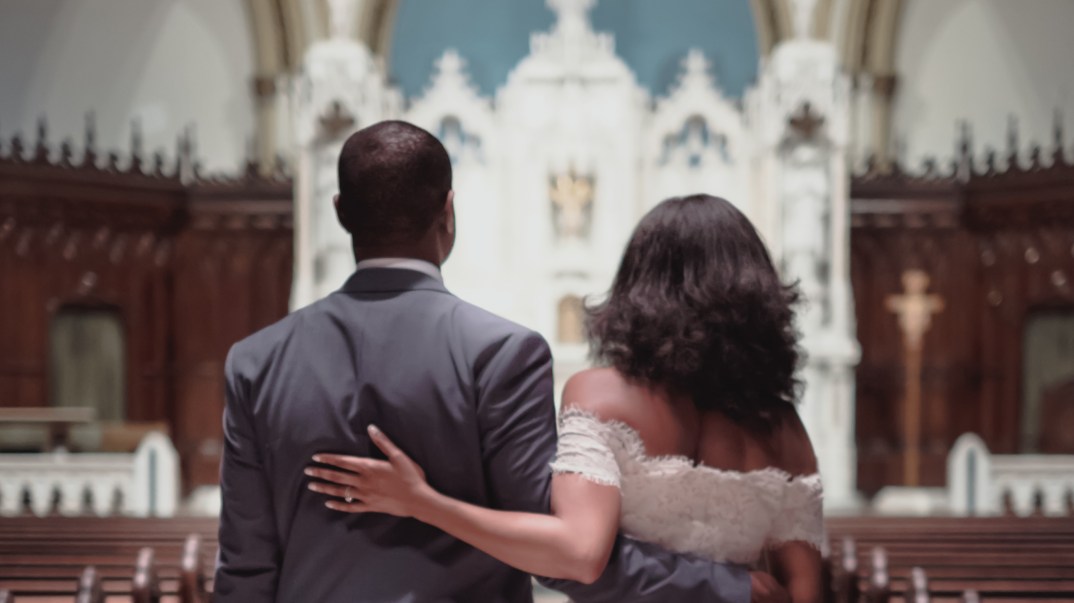
“Notes on faith” is theGrio’s inspirational, interdenominational series featuring Black thought leaders across faiths.
“The most disrespected person in America is the Black woman. The most unprotected person in America is the Black woman. The most neglected person in America is the Black woman.” — El Hajj Malik El Shabazz (formerly Malcolm X)
“I wish you power that equals your intelligence and your strength. I wish you success that equals your talent and determination. And I wish you faith.” — Dr. Betty Shabazz
Black women hold the portal to all life. They are our mothers, sisters, aunts, elders, the doulas to our dreams becoming reality in the present. They are sustaining surrogates, carrying on the mission beyond the life of men, often being the guarantors of the movement. This weekend, we celebrate the life of Rev. Dr. Martin Luther King Jr., but we must also say the name of Mrs. Coretta Scott King, who walked as his partner in life and ensured that her husband’s legacy, and that of the King family, remain firmly imprinted through the federal holiday we celebrate.
But Family, can I be transparent with you all? I am Rev. Calvin Taylor Skinner, a Baptist minister, a husband, a son — and a recovering misogynist. It’s a term borrowed from writer and activist Kevin Powell via my brother, scholar Dr. Jeffrey McCune. I don’t have room to tell it all, but in my youth and early days of ministry, I was such a rascal. It took some hard lessons and great love and patience — especially from my sisters — to help this brother to mature. (A shout to all the sisters and mothers willing to guide us with patience through it all; it’s not your burden to bear.)
Recently, news broke about a lawsuit filed by Rev. Dr. Eboni Marshall Turman against the historic Abyssinian Baptist Church in New York City, one of the oldest Black institutions in America, for gender discrimination in its search for a new senior pastor. Through the decades-long leadership of Rev. Dr. Calvin O. Butts, III, who passed away in October 2022, Abyssinian has continued a now centuries-long legacy of social engagement and advocacy in education, economic equity, public health, housing, business, and politics. Years before accepting a role at Atlanta’s historic Ebenezer Baptist Church, Georgia Senator Raphael Warnock was a student minister and later on the ministerial staff of Abyssinian. From Revs. Adam Clayton Powell Sr. and Adam Clayton Powell Jr. (the latter of whom would go on to spend 26 years in Congress), to Rev. Dr. Samuel Dewitt Proctor to Rev. Butts, the church has boasted a strong tradition of pastorship. My regard for several of these men hinges on how they demonstrated what ministry could look like beyond the pulpit.
The youngest woman to be ordained Assistant Minister in the history of Abyssinian, where she ministered for a decade, Rev. Dr. Marshall Thurman has a Master of Divinity and doctorate from New York’s Union Theological Seminary. She is an associate professor at Yale Divinity School, previously serving as Director of Black Church Studies and an assistant research professor at Duke University Divinity School. She is a founding member of the Black Church Collective, co-chairs the Black Theology group of the American Academy of Religion, and serves on the executive board of the Society for the Study of Black Religion. Nevertheless, she wasn’t even a finalist in Abyssinian’s search for a new senior pastor.
As details emerged from Rev. Dr. Marshall Thurman’s filing, set against the backdrop of the recent resignation of Dr. Claudine Gay from the presidency of Harvard University and the recent suicide of Lincoln University administrator Dr. Antoinette Candia-Bailey, it became clear that Black women leaders are catching hell throughout the land. I found myself called to wrestle with my own journey and the evolution of my perspective regarding women in leadership, especially in the pastoral role. There is so much I have observed and experienced — and perhaps at times engaged in — in the religious world’s dealings with women. As with broader issues in our community and country, there are many perspectives about women in leadership when it comes to faith. There have been instances in my past where churches would not allow women, ordained or not, to speak from the pulpit, instead relegating them to a side podium. Hell, in my own family, there are many on the spectrum, both men and women, who disagree with women in leadership as it concerns ministry.
I have been fortunate to have a father in senior pastoral ministry for almost 50 years. He himself had a women minister on his ordination counsel back in 1968 — almost unheard of at the time. Pop Skinner, our father, told us his journey continued in seminary, sparring in the classroom with pioneering womanist classmates such as Dr Katie G. Cannon, whose cohort was emboldened by the work of Alice Walker, the famed author of “The Color Purple” and “In Search of Our Mothers Gardens.” In the latter, Walker popularized the colloquial term “womanism” to account for a form of Black feminism that centered on the interests of everyday Black women who love each other and the men in their lives. As she puts it metaphorically, “Womanist is to feminist as purple is to lavender.”
Yet even with that early education from my father and observing my parents’ enduring partnership in marriage and ministry, I struggled at times. If I may confess, in my younger years, I had anxieties about dating women who desired to go into ministry. When one particular sister I dated expressed her call to ministry, my insecurities as a young minister would not allow me to affirm her call because I saw her as competition rather than as a partner who ministers. I didn’t have the range. Once I was made aware, with God’s help, of my errors in thinking, I have since made it a point to actively examine the ways in which I am a hindrance.
I now realize that love does not block; it does not allow one’s insecurities to be louder than one’s will to change. Love does everything in its power to set its beloved free. In whatever role or capacity we share with our sisters, may love be the loudest. We can not let sexism or misogyny hinder their capacity. We can be alright — and even rejoice — in seeing our sisters flourish.
Recommended Stories
My own transformation began with moments of self-reflection, conversations with women leaders, and a deep desire to align my faith with my values. Working alongside such powerhouses such as my wife, Rev. Dr. Alisha Lola Jones, my aunt, Rev. Dr. Barbara Williams Skinner, who co-founded the Congressional Black Caucus Prayer Breakfast, and former United States Ambassador-at-Large for Religious Freedom Rev. Dr. Suzan Johnson-Cook, among others, I realized that to be a better faith leader, I needed to shed my biases and prejudices and champion the rights of all individuals to serve in leadership positions, regardless of gender. Considering Black women like Dr. Cynthia Hale, Dr. Elaine Flake, Bishop Yvette Flunder and Pastor Sandra Riley — or Bishop Vashti McKenzie, Bishop Leah Daughtry, Rev. Dr. Carolyn Ann Knight, Rev. Dr. Anika Wilson Brown, Pastor Janae Pitts-Murdock, and Rev. Dr. Gina Stewart, I shudder to think there are places they would not be permitted to serve as bishops, preachers, teachers and pastors. As a leader and a man, I know how many blessings I would miss out on if I dismissed their gifts and disrespected their roles.
Recovering from misogyny takes guidance and accountability with an eye toward a lifelong journey. Since I was introduced to the phrase, I have been on a journey to understand what it means within myself and how I can improve in supporting my spiritual sister and the chief muse of my life, my wife. I am fueled by my desire to know how to walk alongside this leading lady.
As I walk closely with this dynamic woman — a professor, scholar, author and minister, I witness some of the indignities she faces as a Black woman. Whether it is how she is spoken to when giving a lecture or how her presence is erased in spaces of faith, I have observed her go through leaps and bounds, only to have her abilities undermined. I have even eavesdropped on a conversation where she was advised that pursuing certain career moves would not make her attractive in our marriage.
I recognize that misogyny is a loaded term and that it manifests on a spectrum; I have never disliked or hated women. I also understand that misogynoir is not just something from which men suffer, as Black women can internalize and project it onto each other. Nevertheless, I remain on the path of unpacking my role in perpetuating it. I pursue this journey because I want to continue to enhance the life and work of my wife, but further, I desire to be the best brother to my sisters and son to my mothers. Though I may not be on the extreme end of the spectrum, I gather myself for routine checkups. Audre Lorde wrote that there is a “piece of the oppressor which is planted deep within each of us.” To remain committed to the liberation of all of our people demands introspection as we partner with our women in any capacity.
Assessing myself now, when it comes to my views on women faith leaders, I would like to say I have been proactive and honest in my support and in confronting biases when it comes to women in leadership roles such as pastoring. I’m working on it, which is why I call myself “a recovering misogynist.” While loaded, it’s a term and concept that gave me the language to delve deeper into myself and understand the continuous process required to address my latent anxieties around women leaders. Even as someone who has worked alongside several great women faith leaders — and who journeys alongside my love and life partner — I know there are still internalized biases I must remain consciously aware of when it comes to my own formation.
Walking alongside my wife, I am hyper-aware of both the privileges she enjoys and the indignities she endures. How would I respond to the slights encountered by my wife or by a sister minister? I ask myself these questions as I become ever more aware of the energy she and her sister colleagues receive within the constellations of faith.
Embracing women in leadership roles in faith communities is a vital step toward achieving a more equitable and inclusive future for us all. I can only hope we will collectively reevaluate our views and positions with a decolonized mind and a decolonized faith. On a more personal level, protecting Black women starts with the conviction that as Black men seek liberation and advancement, it must be viewed as inextricable from our Black sistren. We must walk the journey to freedom in lockstep with one another, without fail. When we take inventory of the important yet often invisible labor that metaphorically turns water into wine, everyday Black women save our lives. Yet, we keep taking for granted that our best and brightest will continue to put their reputations and lives on the line without any assurance that we’ve got their backs.
We pray that we be made ideal partners, sisters and brothers, sharing the load in our community so that we may walk together into our liberation.
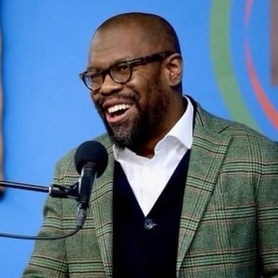
Rev. Calvin Taylor Skinner is dedicated to empowering frontline communities in Knoxville, Tenn. and the United Kingdom. He uses faith and policy to address energy justice, criminal justice reform, voter education/mobilization, electoral politics, and global affairs. Along with his wife, Rev. Dr. Alisha Lola Jones, they lead InSight Initiative, a consulting firm focusing on capacity building and live events production.
Never miss a beat: Get our daily stories straight to your inbox with theGrio’s newsletter.
